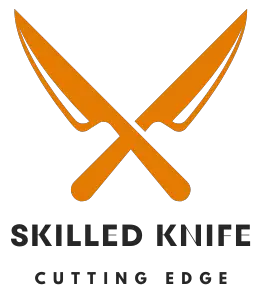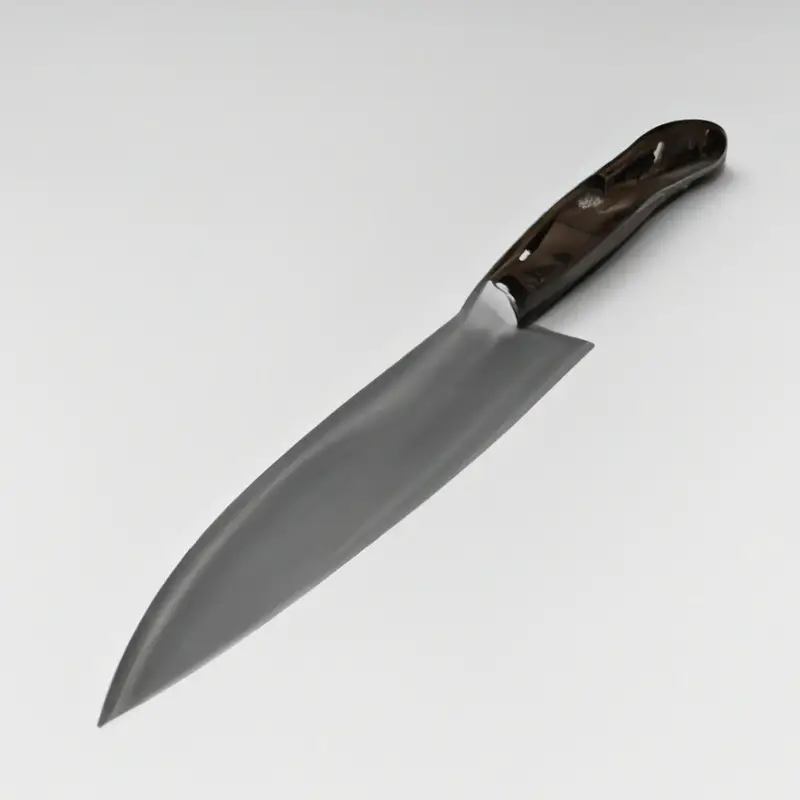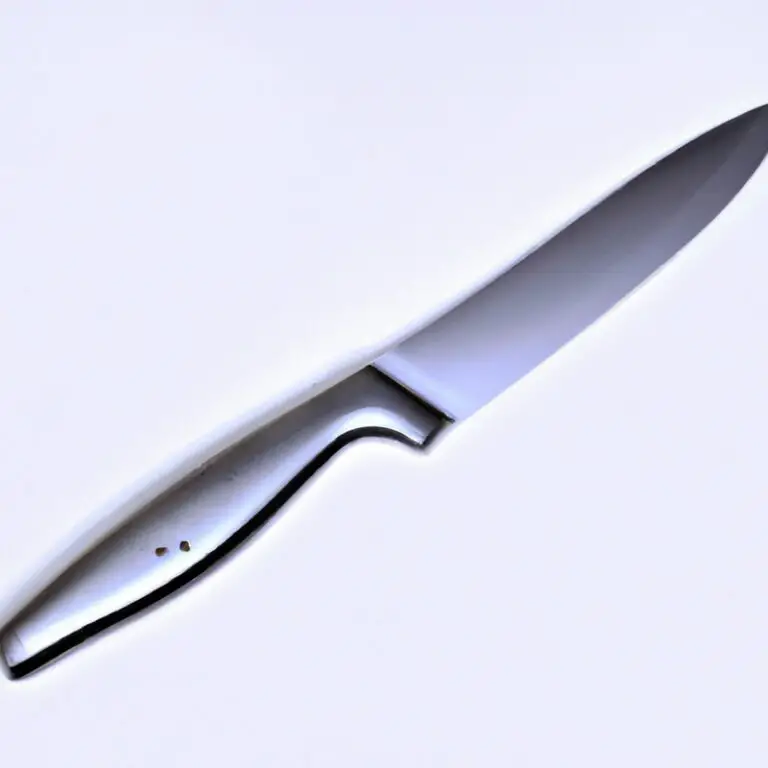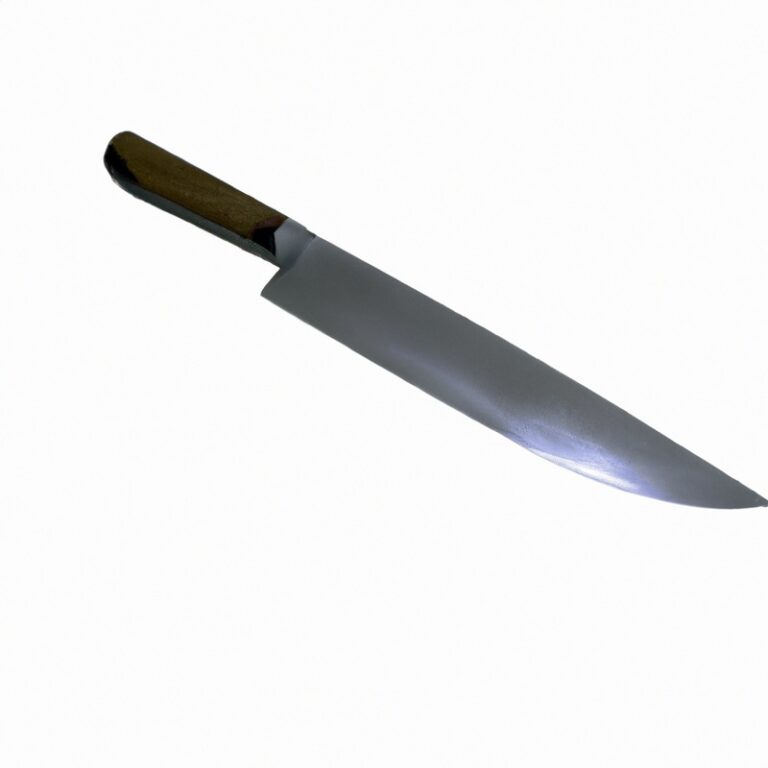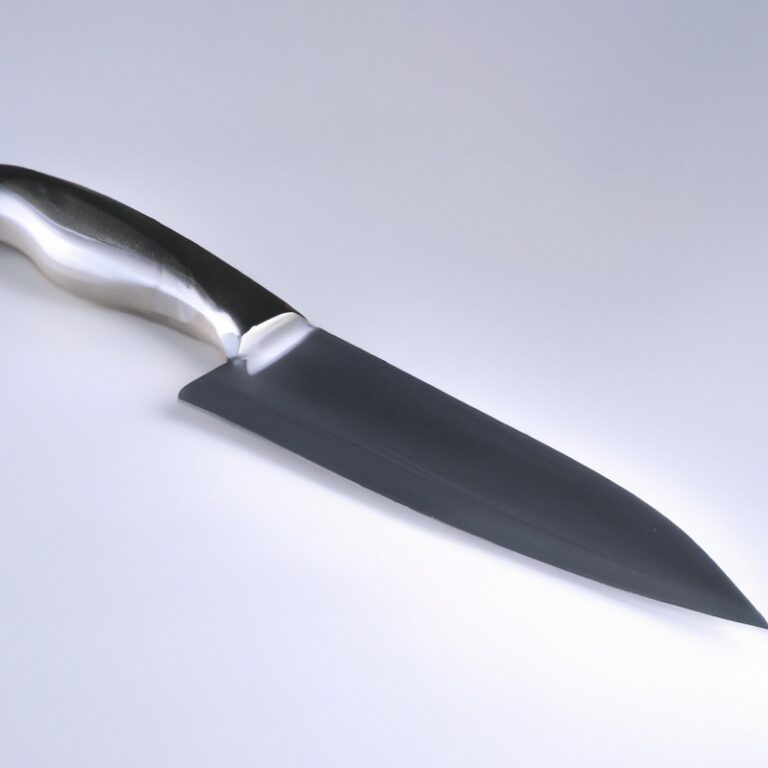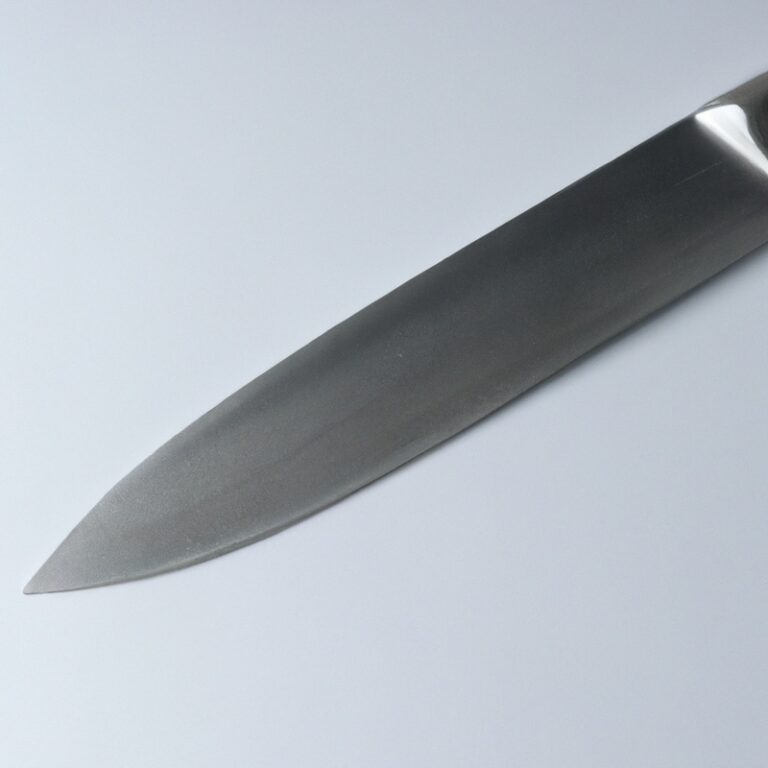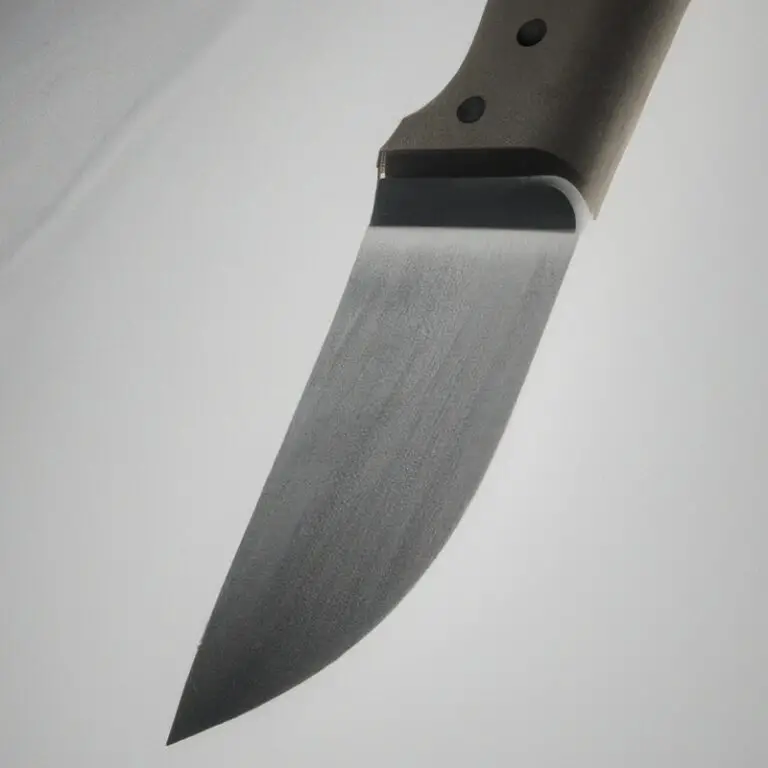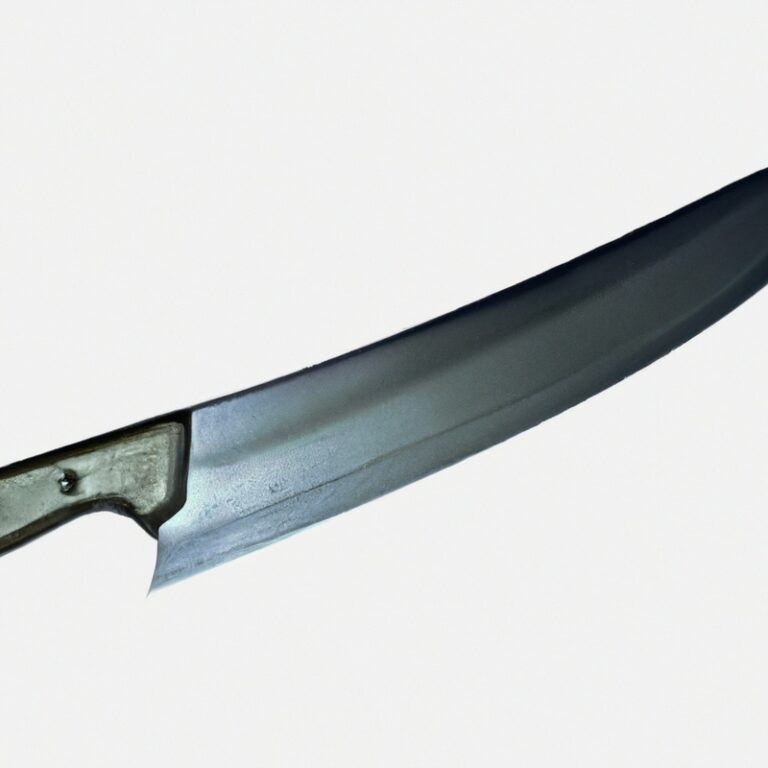What Is The Role Of Molybdenum In Knife Steel?
Key Takeaways:
- Molybdenum improves the strength and hardness of knife steel.
- Molybdenum enhances the corrosion resistance of knife steel.
- Molybdenum promotes the retention of sharpness in knife edges.
- Molybdenum helps prevent pitting and staining in knife steel.
Imagine a world without knives.
From slicing through juicy steaks to effortlessly dicing onions, our trusty blades play an essential role in our daily lives.
But have you ever wondered what makes a knife strong, durable, and resistant to corrosion?
Enter molybdenum, the unsung hero of knife steel.
In this article, I’ll be diving into the fascinating world of molybdenum and its crucial role in enhancing the properties of knife steel.
Join me as we explore how this little-known element enhances hardness, toughness, corrosion resistance, edge retention, and wear resistance in our beloved blades.
Get ready to slice and dice like a pro!
| Molybdenum | Role in Knife Steel |
|---|---|
| Chemical Symbol: | Mo |
| Atomic Number: | 42 |
| Atomic Weight: | 95.94 |
| Melting Point: | 2,623°C (4,753°F) |
| Boiling Point: | 4,638°C (8,380°F) |
| Role in Knife Steel: |
|
Properties of Knife Steel
Overview of knife steel
Knife steel refers to the material used to make a knife blade.
It plays a crucial role in determining the knife’s performance and longevity.
The selection of knife steel depends on factors such as desired hardness, toughness, corrosion resistance, and edge retention.
Different types of steel have varying compositions, each offering unique properties.
Some popular knife steel types include stainless steel, carbon steel, and tool steel.
The choice of steel depends on the intended use of the knife, personal preferences, and budget.
It’s important to consider the specific properties of each steel type to choose the appropriate knife for your needs.
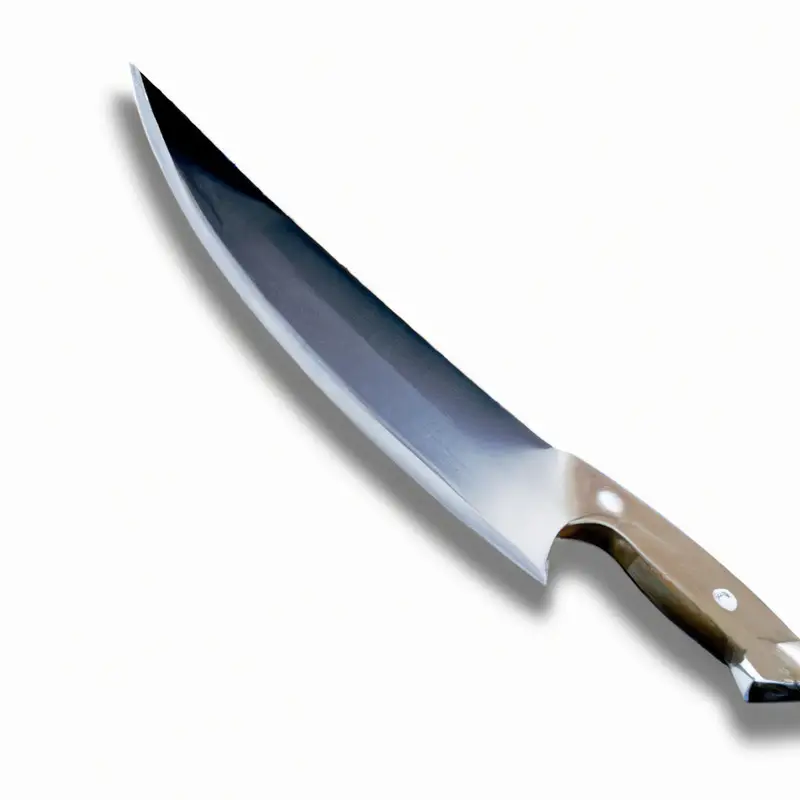
Key properties of knife steel
Key properties of knife steel include hardness, toughness, corrosion resistance, edge retention, and wear resistance. These properties determine the performance and durability of a knife.
Hardness ensures the blade retains its shape during use, while toughness prevents it from chipping or breaking.
Corrosion resistance helps prevent rusting, and edge retention refers to how well the blade holds its sharpness. Lastly, wear resistance determines how well the blade resists abrasion and maintains its cutting edge over time.
These properties are essential for a high-quality knife that will last and perform well.
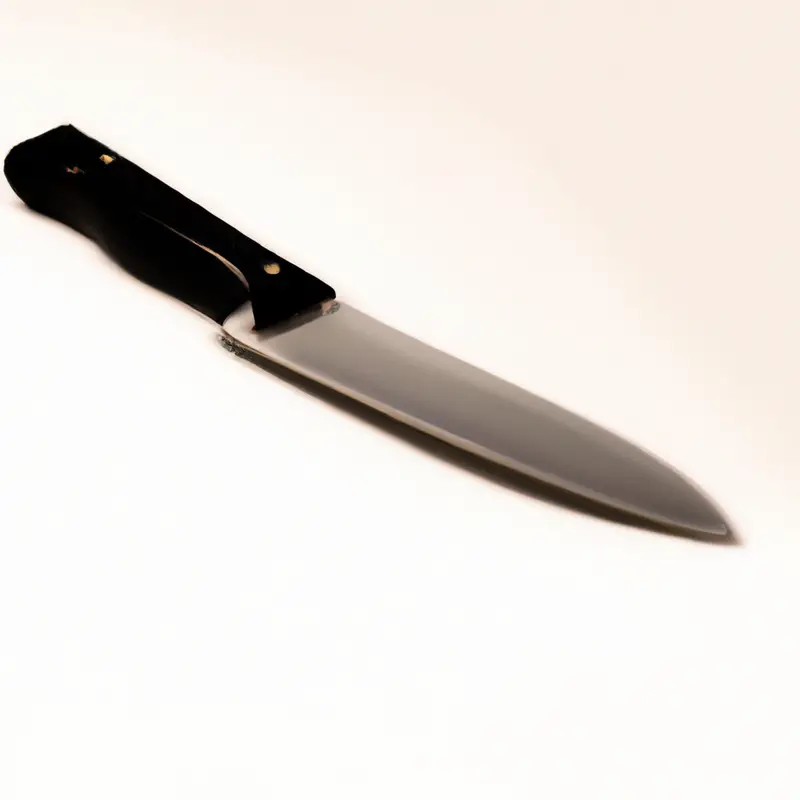
Role of molybdenum in enhancing properties
Molybdenum plays a vital role in enhancing the properties of knife steel. It contributes to hardness and toughness, making the blade more resistant to damage and deformation.
Additionally, molybdenum improves corrosion resistance, preventing rust and prolonging the lifespan of the knife.
It also enhances edge retention, ensuring that the blade stays sharp for a longer duration. Moreover, molybdenum improves wear resistance, reducing the need for frequent sharpening.
Overall, molybdenum is a valuable element that enhances several crucial properties of knife steel.
Molybdenum in Knife Steel
Molybdenum content in knife steel
Molybdenum is a key element in knife steel that enhances its performance.
The content of molybdenum in knife steel can range from 0.5% to 8%.
Higher molybdenum content contributes to improved hardness, toughness, and wear resistance of the steel.
It also enhances corrosion resistance and the ability of the blade to retain its sharp edge.
The optimal molybdenum content depends on the specific characteristics desired in the knife, such as whether it will be used for heavy-duty tasks or precision cutting.
Manufacturers carefully choose the molybdenum content to create knife steels that meet different needs.
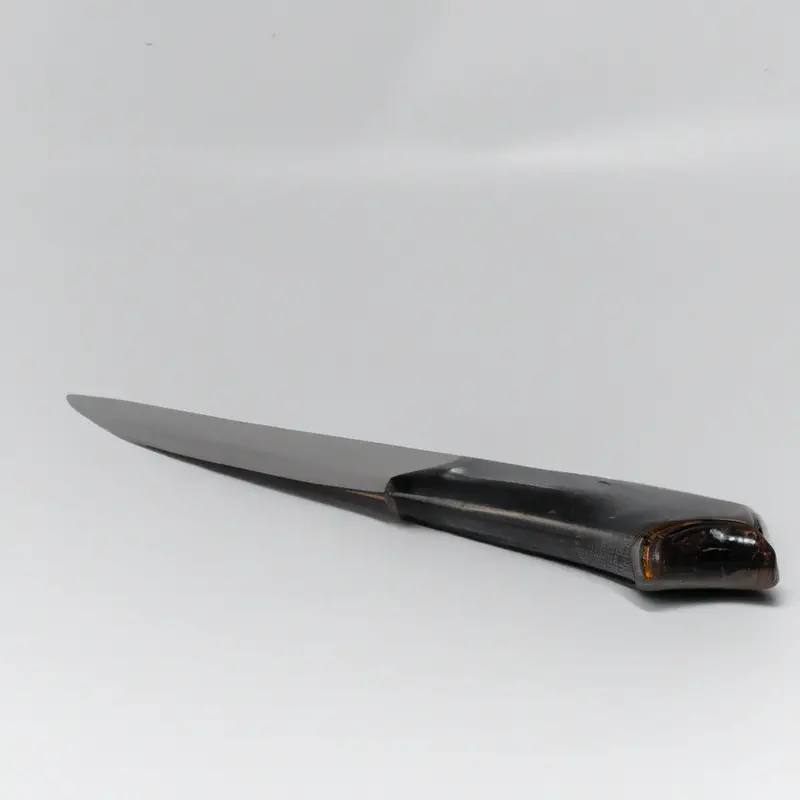
Effects of molybdenum on hardness and toughness
Molybdenum plays a significant role in enhancing the hardness and toughness of knife steel.
It boosts the hardness by forming dense and stable carbides, which increases the material’s resistance against deformation and wear.
Additionally, molybdenum helps in improving the toughness by refining the grain structure, making the steel less prone to cracking or breaking.
The presence of molybdenum in knife steel contributes to a balance between hardness and toughness, making it an essential element for high-performance blades.
Contribution of molybdenum to corrosion resistance
Molybdenum plays a significant role in enhancing the corrosion resistance of knife steel. It forms a protective oxide layer on the surface, preventing rust and oxidation.
This makes knives with molybdenum steel more durable and resistant to moisture and corrosive elements.
The addition of molybdenum increases the steel’s ability to withstand harsh environments, making it ideal for outdoor and marine applications. Additionally, molybdenum helps maintain the overall appearance of the knife by reducing the likelihood of stains and discoloration caused by corrosion.
Impact of molybdenum on edge retention
Molybdenum plays a significant role in enhancing the edge retention of knife steel. It helps to improve the hardness and wear resistance of the blade, thereby allowing it to maintain a sharp edge for a longer period.
The presence of molybdenum also helps in preventing the formation of burrs and chips, ensuring that the blade stays sharper for a longer time.
Additionally, molybdenum enhances the overall toughness of the steel, making it more resistant to chipping or breaking during use. So, if you want a knife that retains its sharpness even after extended use, look for one with a higher molybdenum content.
Role of molybdenum in improving wear resistance
Molybdenum plays a key role in improving the wear resistance of knife steel. Its presence enhances the steel’s ability to withstand friction and abrasion, making the blade more durable and long-lasting.
Molybdenum forms carbides within the steel’s microstructure, which helps to increase hardness and reduce wear.
This means that knives made with molybdenum steel can retain their sharpness and edge for a longer time, even with regular use. So, if you’re looking for a knife that can withstand wear and maintain its performance, choosing one with molybdenum steel is a reliable option.
Comparing Knife Steels
Evaluating different knife steels containing molybdenum
When evaluating different knife steels that contain molybdenum, there are a few key factors to consider. One is the molybdenum content itself, as higher amounts can enhance hardness and toughness.
Another important aspect is corrosion resistance, where molybdenum plays a significant role in preventing rust and oxidation.
Additionally, molybdenum contributes to improved wear resistance, helping the knife maintain its edge for longer periods. It’s crucial to find the right balance of molybdenum along with other alloying elements for optimal performance in various steel compositions.
Advantages and limitations of molybdenum in different steel compositions
Molybdenum offers several advantages in different steel compositions.
It improves hardness, toughness, and wear resistance, making the steel more durable and long-lasting.
Molybdenum also enhances corrosion resistance, protecting the steel from rust and other environmental factors.
However, there are limitations to consider.
Too much molybdenum can decrease machinability, making it harder to shape and work with the steel.
Additionally, the cost of molybdenum can be higher compared to other alloying elements.
Ultimately, the inclusion of molybdenum in steel compositions depends on the specific requirements and trade-offs desired for the application.
Maintenance and Care
Tips for maintaining knives with molybdenum steel
To maintain knives with molybdenum steel, here are some tips:
- Clean the knife after each use with warm water and mild soap. Avoid harsh cleaners that can damage the blade.
- Dry the knife thoroughly to prevent moisture and rust formation. Pay extra attention to the areas where the blade meets the handle.
- Store the knife in a dry place, away from moisture and humidity. Consider using a knife block, sheath, or magnetic strip to protect the blade.
- Avoid using the knife on hard surfaces like glass or ceramic, as it can chip the blade. Stick to cutting boards made of wood, bamboo, or plastic.
- Regularly sharpen the knife using a honing rod or sharpening stone. This will help maintain its sharpness and cutting performance.
Proper cleaning and storage techniques to prevent corrosion
To prevent corrosion on knives made with molybdenum steel, proper cleaning and storage techniques are essential.
Here’s what you can do:
- After each use, clean the knife with mild soap and warm water. Avoid using abrasive cleaners or scrubbing pads that can damage the steel’s surface.
- Dry the knife completely before storing it. Moisture can lead to rust and corrosion. You can use a clean towel or air-dry it.
- Apply a thin layer of food-safe oil or lubricant on the blade and handle. This helps create a protective barrier against moisture and prevents oxidation.
- Store your knife in a dry environment. Avoid storing it in a damp area, such as near the sink or dishwasher. Consider using a knife block, sheath, or a knife roll for safe and secure storage.
Final Verdict
Molybdenum plays a crucial role in enhancing the properties of knife steel.
It improves hardness and toughness, contributes to corrosion resistance, enhances edge retention, and improves wear resistance.
By incorporating molybdenum into knife steel, manufacturers can create blades that are durable, resilient, and long-lasting.
However, it is important to note that the effectiveness of molybdenum depends on the specific composition of the steel.
To maintain knives with molybdenum steel, proper cleaning and storage techniques should be followed to prevent corrosion.
Overall, molybdenum is a valuable element in the production of high-quality knife steel.
